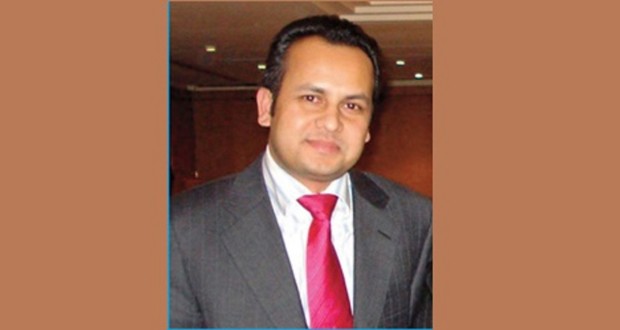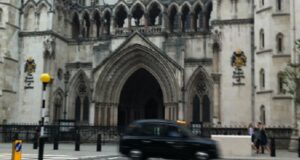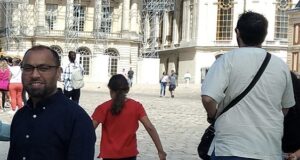Taysir Mahmud, Editor of the Weekly Desh, which is published in London, asks if is a free and fair election is possible in Bangladesh without a caretaker government.
Last April I went to Bangladesh as my father suddenly passed away. I stayed in my motherland for two weeks. During my visit, myself and other members of my family used to sit and chat every now and then. We talked about various issues ranging from village politics to national politics, economics and the country and nation as a whole. In regards to politics, the 5th January election in 2014 dominated our discourse. The elections were held almost without voters: arguably, only 5% voters practised their right to vote. The main focus in our discussion was on the question of how many votes someone may cast at a time.
My cousin Shahed Ahmed was a mid-level member of Chattra League, the student wing of the Government-led party. During the election period, Shahed was just 17 years old. He also joined in our discussion to explain his own experience of the elections. He said to us, “Was it an election? I cast 70 votes at a time.” My elder brother said that by the time he reached the polling station, he found that his vote had already been cast. His friends were laughing at him. “Why do you take the trouble to come here? We are here to cast your vote,” my brother was told.
Endless numbers of similar stories about 2014 elections are floating around Bangladesh. Now, the question is how we learnt about the elections, living far away from Bangladesh. The answer, of course, is by reading Bangladeshi newspapers and watching televisions online. Some of the Bangladeshi media devoted a huge amount of coverage to election manipulations. I also kept questioning myself, asking what kind of election was that? Polling agents were kept out of the booth, presiding officers were held passively active and some people were sealing ballot papers for the candidate of their choice. These scenes were on the media and have haunted me till now.
I can still remember attending a press conference at the time in central London, where I faced a degree of embarrassment in front of some of the British journalists. They were asking me if that is the way elections are held in my country. I didn’t have any satisfactory answer for them. What would I tell them? Here in Britain, no one even imagines that type of voting. British people do not know what election rigging is! On an election day, they cast their vote any time between 7am and 10 pm. Unlike Bangladesh, long queues are seldom seen outside the polling stations. If it is a rainy day, many voters do not even turn out to vote. Some polling agents station themselves outside the polling centers to distribute leaflets and to campaign for candidates of their choice. Violence and vote rigging are (almost) unheard of in UK elections.
Elections give Bangladesh a festive mood. A large number of the population enjoys participating in the democratic process. Therefore, election rigging is the only weapon to bypass the peoples’ verdict. When the Bangladesh Nationalist Party (BNP) was in office, most votes were cast for the sheaf of paddy, which is the election symbol of the party. Now, the same is happening with the Bangladesh Awami League in office. The majority of votes are being cast for their symbol, which is a boat. This merry-go-round prevailed before the caretaker government and after the repeal of the system.
[Adverts]
Almost two and a half decades ago, I was appointed as a polling agent of a Union Parishad candidate. Union Parishad elections are at the bottom level of any local elections in Bangladesh, where rural people elect their representatives. In those days, voters had no ID card, so the main duty of a polling agent was to identify voters. In the early hours of the Election Day we were performing our duty freely and fairly, but in the afternoon the situation became problematic. We discovered that a proxy voter came in to vote for someone who was living abroad. As proxy voting was illegal, we brought the matter to the attention of the presiding officer at the polling centre. The presiding officer sent the proxy voters away. A leader of the village realised what we had done and came to threaten me. He threatened to punish me, if I did the same thing again.
I felt very fearful. The polling centre was full of people: there were presiding officers and police. But the administrative and law enforcement personnel were inactive, not performing their duty. I decided not to risk my life. Fraudulent voting was going on. By the end of the day, an agent of the ruling party’s candidate sealed the remaining ballot papers alone and put them in the ballot box to be counted as cast votes. We, the polling agents, silently witnessed their evil activities, as did the presiding and other officers. The ruling party’s candidate was declared the winner, by a large margin.
That was my experience of being an election agent in Bangladesh. At that time, Bangladesh Television (BTV) was the lone television medium in Bangladesh. It was, and still is, directly controlled by the Government. There were a very few newspapers. That is why it was impossible for someone to realize from the outside what was going on inside the polling stations, unless someone went through the process that I had experienced.
Nowadays, you don’t have to be present in polling stations to know about fraudulent activities. It’s very simple and easy, no matter where you are – it’s just like watching your face in the mirror. As we witnessed the municipality elections, which were held on 30th December 2015 throughout Bangladesh, television reports broadcast footage of many irregularities. The footage showed that ruling party activists were casting proxy votes in favour of their candidates, in the presence of presiding officers and with the help of police personnel. One media report said that a mayoral candidate was almost beaten to death. The story went viral on social media.
[Adverts]
There are many examples of irregularities, vote rigging and intimidation of voters and the press. Ekattor TV’s Sylhat burro chief Iqbal Mahmud and his team members were thrown out of Barlekha Degree College area, which was a polling centre during the recent municipality election. Instead of taking details of his complaints from Mr Iqbal Mahmud, local police also behaved in a similar fashion to the supporters of the ruling party. The officer in charge of the local police station told the Ekattor TV journalist to stop filming in that area and go back. The television crews were barely able to return unharmed from there. Their facebook statement regarding this went viral.
Let’s take an example of another television report. Jamuna television was broadcasting live from outside a polling station, where a long queue of young people was waiting to cast their votes. The reporter found out that some of the voters didn’t have any ID card with them and surprisingly some of the voters failed to tell the reporter what their fathers’ names were. The report primarily proved that those voters were fake voters and they were queuing to cast proxy votes. It is mandatory to carry a voter ID card in order to cast a vote in Bangladesh elections. An ID card mentions the name of its bearer’s father.
The controversial Chief Election Commissioner (CEC) of Bangladesh Raqib Uddin claims that the recent elections were held in a free and fair manner. Many people consider the CEC as a helpless and powerless person. The critics of the CEC say that he would risk his job and his life if he tried to tell the truth about the elections.
•Taysir Mahmud can be reached on: taysir.taysirmahmud@gmail.com
[Adverts]
 East London News A Force for the community…
East London News A Force for the community…





The electoral problem in Bangladesh is one that is faced by many developing nations.
Corruption is rife within government and it filters down to every level and this factors through and is evident during the election processes.
Governments who have this problem need to have photographic ID of all eligible voters, they need to invest in a system that captures and stores this sort of information as we have here in the UK in the form of an electron register.
Any person found threatening voters or polling staff (inc police officials) should be dealt with justice and those in positions to maintain law and order who stem to this level should be made an example of in the media, as a deterrent to anyone else who wishes to stoop to this level.
The problem we face in Bangladesh is one of internal corruption and Bribery and no amount of democratic facade that they display will amount to anything if this isn’t sorted out.
Albeit via an external agency or internally.
this is huge problem for Bangladesh, it very important free and fair election in Bangladesh.